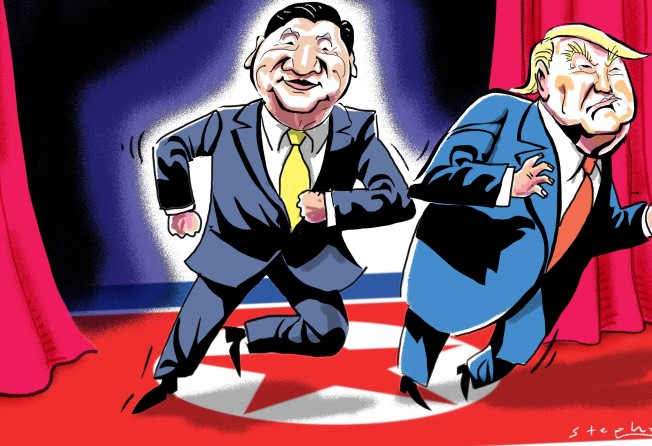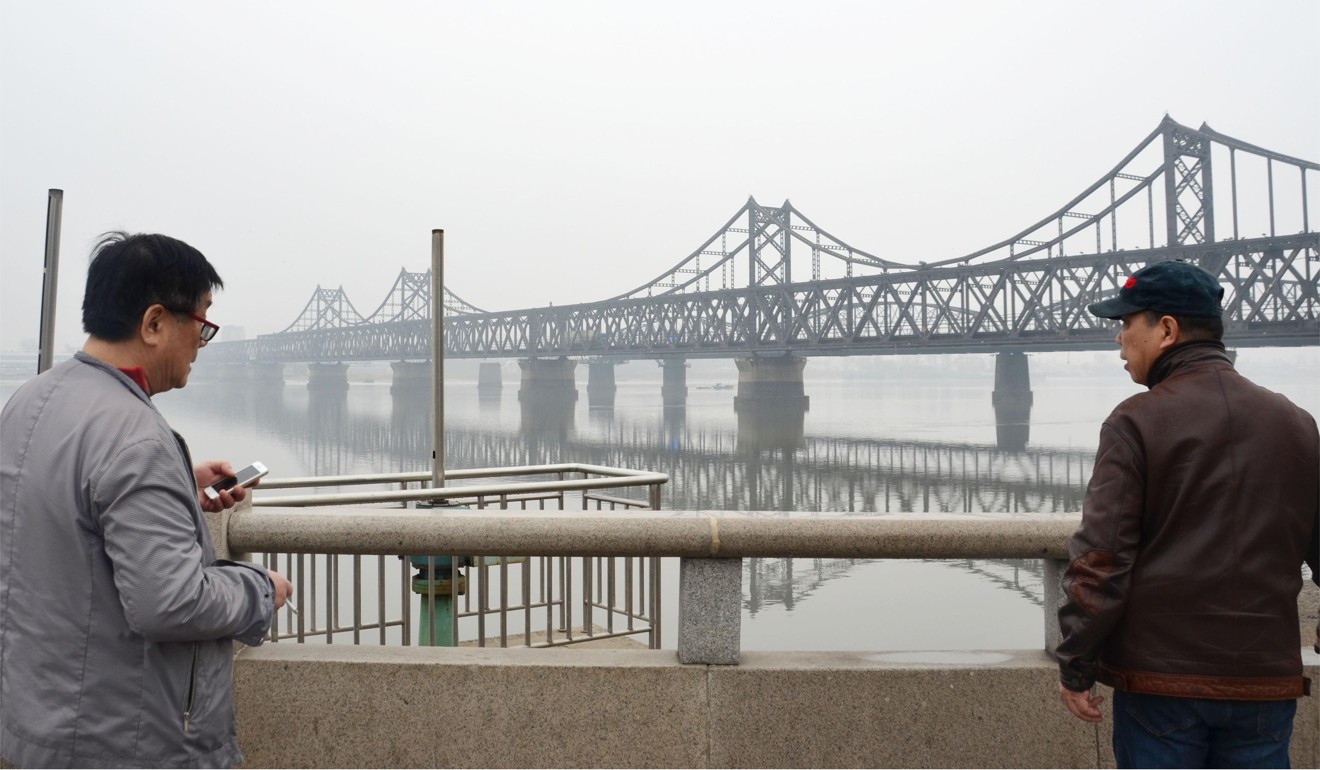Why China won’t be sidelined in North Korean affairs
Peter J. Li says China’s dominance in North Korea’s economy and security matters is unparalleled and Kim Jong-un knows it. For its part, Beijing won’t easily give up its influence, given Pyongyang’s strategic importance

On March 9, US President Donald Trump dropped a bombshell when he accepted Kim Jong-un’s invitation for a summit meeting. The announcement has since brought the North Korean leader to the forefront of international diplomacy.
An inter-Korean summit between Kim and Moon Jae-in is set for April. And while American and North Korean officials are busy working out details of the Trump-Kim summit, Kim’s unannounced visit to China has heightened global interest in the first-ever summit meeting – if it takes place – between a sitting US president and his North Korean counterpart.
More importantly, Kim’s trip to Beijing seems to reject the claim that China has been marginalised in North Korean affairs.
China’s role in matters related to the Korean peninsula is unparalleled. Beijing may have been caught off guard when the Kim-Trump summit was announced, but it is a stakeholder in the region’s stability through the 1961 Mutual Aid and Friendship Cooperation Treaty with North Korea. This treaty, which has an article on military alliance, has served to deter provocations from both sides of the demilitarised zone.
Since the collapse of the Soviet Union in 1991, China’s importance to North Korean security has only increased. It is Pyongyang’s lifeline. As one of the world’s most isolated countries, North Korea uses China as its gateway to the outside world.
To say that China is the biggest trading partner of North Korea does not fully reflect the way it dominates the North Korean economy. Some 90 per cent of Pyongyang’s foreign trade is generated by its trade with China, much of it in food and fuel imports.
A large number of North Korean businesses operate in China, earning much-needed hard currency to fund the regime’s pet projects. Many of these businesses are closing down because of the sanction measures in accordance with UN Security Council Resolution 2375.
Pyongyang’s desperate moves are often made to reinforce its ties to China. During the cold war between 1946 and 1991, North Korean leaders made good use of the China-Soviet ideological conflict to benefit from both sides. The collapse of the Soviet Union made China the only source of support for Pyongyang.

In 1992, when Beijing established official ties with Seoul, Pyongyang began to adjust its foreign policy. It started a nuclear development programme and actively sought direct dialogue with the US. The two extreme measures were designed to acquire new leverage not only to confront the South and the US, but also to force China to honour its commitment to the North’s security.
Pyongyang’s strategic importance to China remains intact despite Beijing’s diplomatic recognition of Seoul. Thus, China will not allow itself to be marginalised in matters related to the Korean peninsula.
A direct dialogue between North Korea and the US is no problem to Chinese leaders who know that Pyongyang will not trade off its security or regime stability in talks with the Americans. China welcomed the proposed Trump-Kim summit. Pyongyang’s missile and nuclear weapon programmes have indeed exacerbated the security situation on the Korean peninsula and in Northeast Asia as a whole, particularly after the US introduced the anti-missile system, THAAD, in South Korea.
Beijing’s concern for regime stability in North Korea is another reason it will not allow itself to be sidelined. Until very recently, China had tried to make sense of Pyongyang’s behaviour. The missile and nuclear tests, the execution of Jang Song-thaek, Kim’s uncle, and the assassination of his half-brother seem to have blocked a summit meeting between Kim Jong-un and Xi Jinping.
A collapse of the North Korean regime and the unification of the peninsula under the Republic of Korea, a US ally, is not an outcome China wants to see
Despite the lack of a high-level meeting before this week, China sees regime stability in North Korea as the most important objective. A collapse of the North Korean regime and the unification of the peninsula under the Republic of Korea, a US ally, is not an outcome China wants to see.
The Korean peninsula has geopolitical importance. Chinese leaders are versed in Chinese history, particularly the country’s experience in the so-called “century of humiliation” at the hands of imperialist powers. The Sino-Japanese war of 1894-1895 started in Korea. China’s defeat in the war caused catastrophic consequences. Not only did China lose suzerainty over Korea, but it was also forced to give up Taiwan and southern Manchuria to Japan.
The war crushed Chinese pride because Japan, the winner of the war, had been a student of China for centuries. The most consequential outcome of the war was the downfall of the Qing dynasty. In 1950, when China entered the Korean war, the Chinese leaders were determined not to allow history to repeat itself.
There is another reason China would not allow itself to be sidelined. Its unparalleled position in matters related to North Korea was acquired at a high price. Chinese casualties in the Korean war were close to 400,000 soldiers, many of whom are still buried in North Korea. The lives of hundreds of thousands of Chinese soldiers should not have been sacrificed in vain. They fought in Korea and died young for one purpose – to prevent the Korean peninsula from becoming a security danger for China.
In the foreseeable future, Beijing will continue to support regime stability in North Korea. This policy could change only if the US withdrew its forces from the peninsula and a unified Korea adopted a policy of neutrality like that of Austria.
Peter J. Li, PhD, is an associate professor of East Asian politics at the University of Houston-Downtown. [email protected]